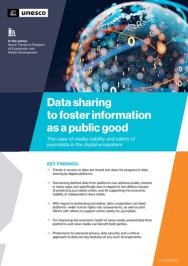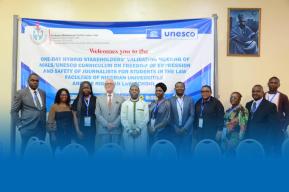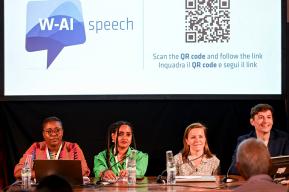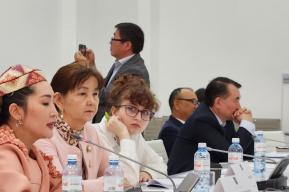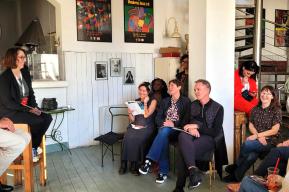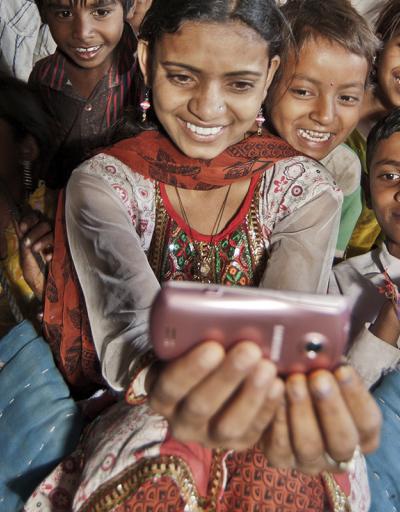
News
UNESCO Unveils Data Sharing and Transparency Brief at COP28

Amidst delegations and experts gathering in Dubai for COP28, UNESCO underscored the crucial role of information as a public good in addressing the world’s most pressing environmental challenges and its essential contribution to upholding all other rights and achieving the Sustainable Development Goals.
For independent media to fulfill this significant role, however, it is imperative to ensure journalists’ safety and the financial viability of newsrooms. The rise of digital platforms has introduced heightened challenges, including online violence, particularly targeting women journalists, posing serious threats to their ability to carry out their work safely. At the same time, newsrooms around the world are grappling with financial sustainability as traditional business models falter and digital advertising revenues largely flow to online platforms.
As detailed in this new policy brief, enhanced platform transparency and sharing of data, particularly in regards to journalist safety and media viability, could prove mutually beneficial for media stakeholders and online platforms. This transparency could assist platforms in assessing and improving their human rights risk assessments and contribute to information as a public good.
The brief outlines the challenges in establishing data-sharing arrangements between platforms and journalists, researchers and other interested stakeholders. It emphasizes the value of such arrangements for all parties involved and present a comprehensive list of “data asks.”
For instance, data on content and user elements could inform outlets’ strategies to better reach and engage their audience. Similarly, information on the volume and format of threats targeting journalists and how companies respond could inform platform’s risk assessments and pre-emptive actions to improve journalist safety.
Despite challenges faced in achieving increased platform transparency in recent years, current trends indicate potential for greater data sharing. Recently launch of UNESCO’s Guidelines for the Governance of Digital Platforms has spurred policy debate on regulation in the interest of information as a public good.
The brief also provides insights into recent changes and legislation in the field, including national, intergovernmental and platform company policies, while also compiling extensive resources on the evolving landscape. It lays out the potential benefits for all stakeholders and that protections for personal privacy, data security and a critical approach to data be viewed as components of, not barriers to, data access.
The brief’s proposals on the way forward include the need for stakeholders to further develop and align their specific data asks, the convening of good faith dialogues and pilot partnerships between platforms and data users. Additionally, it calls on all parties to promote public data literacy as a key element of data sharing, emphasizing its potential impact on journalists' safety and media viability.
Funding for this work was provided by UNESCO’s International Programme for the Development of Communication (IPDC) and the Multi-Donor Programme for Freedom of Expression and the Safety of Journalists.
